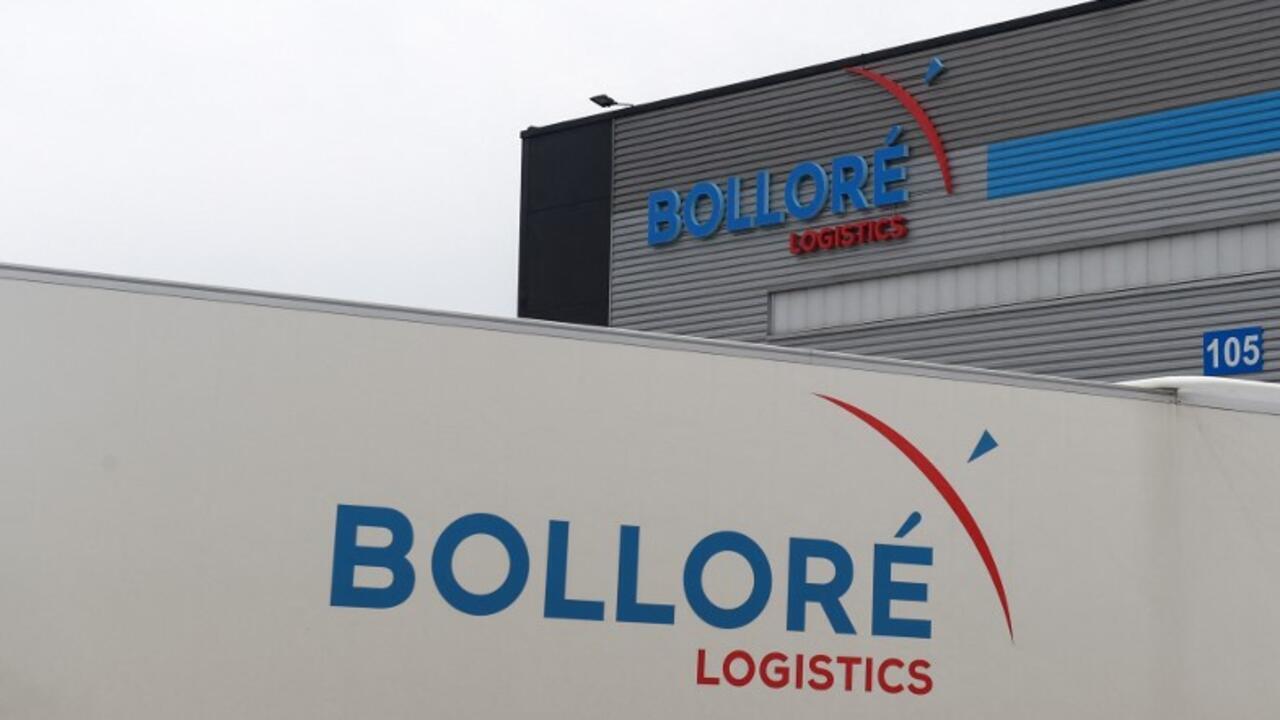Maintenance
Sale of Bolloré's logistics activities in Africa: "There is no ideological break"
Bolloré Logistics will sell its African infrastructure to the Italian shipowner MSC.
AFP - ERIC PIERMONT
Text by: Olivier Rogez Follow
4 mins
The Bolloré group announced on Thursday March 31 that it had reached an agreement with the Italian-Swiss shipowner MSC for the sale of its logistics activities in Africa, the group's emblematic branch, for 5.7 billion euros.
Interview with Yann Alix, general delegate of the Sefacil foundation, laboratory of forward-looking ideas on maritime, port and logistics strategies.
Advertising
Read more
It is therefore the Italian-Swiss shipowner, world leader in container transport, which is buying Bolloré's activities in Africa
for 5.7 billion euros
, namely the subsidiary Bolloré Africa Logistics.
The two groups had been in exclusive negotiations since last December.
Over the past three months, Bolloré executives have gone to talks with the leaders of the states in which Bolloré managed port concessions to convince them of the merits of this operation.
The MSC group and the Bolloré group know each other well and are complementary.
The leaders of MSC are particularly well introduced in France where they have port activities as well as in shipyards.
RFI: Why did Bolloré decide to sell its transport and logistics activities in Africa?
Yann Alix
:
There is a strategic shift which is embodied by the fact that Vincent Bolloré senior – founder of all the group's African logistics – is retiring next year.
And Cyril Bolloré (his son, editor's note) has never been involved in African affairs.
There is a second fundamental thing to take into account, it is the fact that Mr. Bolloré is a fine financier and it is the right time to sell assets, since the market signals are extremely positive, and the valuation of the assets is high.
The supply-demand ratio is favorable to Bolloré.
Opposite, we have MSC, a group with a handling subsidiary called TIl, and logistics activities such as Medlog which are particularly favored by the market.
So they have liquidity and capacity to be able to accelerate their African development.
I believe that there is a good alignment of the planets finally.
Could the legal setbacks of Vincent Bolloré in Africa, or those of its subsidiaries, have influenced its choices?
I would rather say that in 2019, Bolloré sold its French port interests, because it was also a nice gamble and a good way to offload some of its assets.
Here, in all sincerity, I see more of another argument than the polemical argument about the personality of Vincent Bolloré.
Today, to win a port concession in Africa, several hundreds of millions of dollars have to be put on the table.
Competition has increased as it did not twenty years ago.
The financial entry cost is much higher than what we have seen in the past.
And I think that Bolloré is in the idea that alone, facing large groups like DPWorld or TIL Group, the investments are very substantial.
It is perhaps a change of dimension that Bolloré does not want to assume in the future.
MSC is a well-known shipowner since it is the world's leading container freight carrier. However, we have the impression that there is a great complementarity between these two groups. Is it correct ?
In the distribution of market shares, this is the case.
Apart from Lomé, in Togo, where TIL has its large handling and transhipment hub, where Bolloré has its terminal and where the merger of the two entities creates a dominant, even monopolistic position, all the other places are ultimately rather complementary.
We are more in a logic for MSC to want to go up the value chain.
A very coherent logic.
An industrial coherence and perhaps also an ideological continuity of these European groups in their relationship with African leaders. As we know, ports are strategic for States, and countries no doubt seek to minimize the effects of changes in shareholders. Perhaps for the French leaders, it is better to see the interests remain in European hands rather than Chinese or Emirati?
I agree with you except that in the end, we even imagined the French group CMA-CGM winning the bet.
The Franco-French logic would have been even stronger.
Nevertheless, it is true, there is no ideological break, which would have been the case with Chinese, Emiratis, Turks or Indians.
Newsletter
Receive all the international news directly in your mailbox
I subscribe
Follow all the international news by downloading the RFI application
google-play-badge_EN
Economy Africa
France
Companies
our selection
Maintenance

